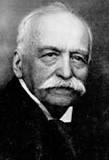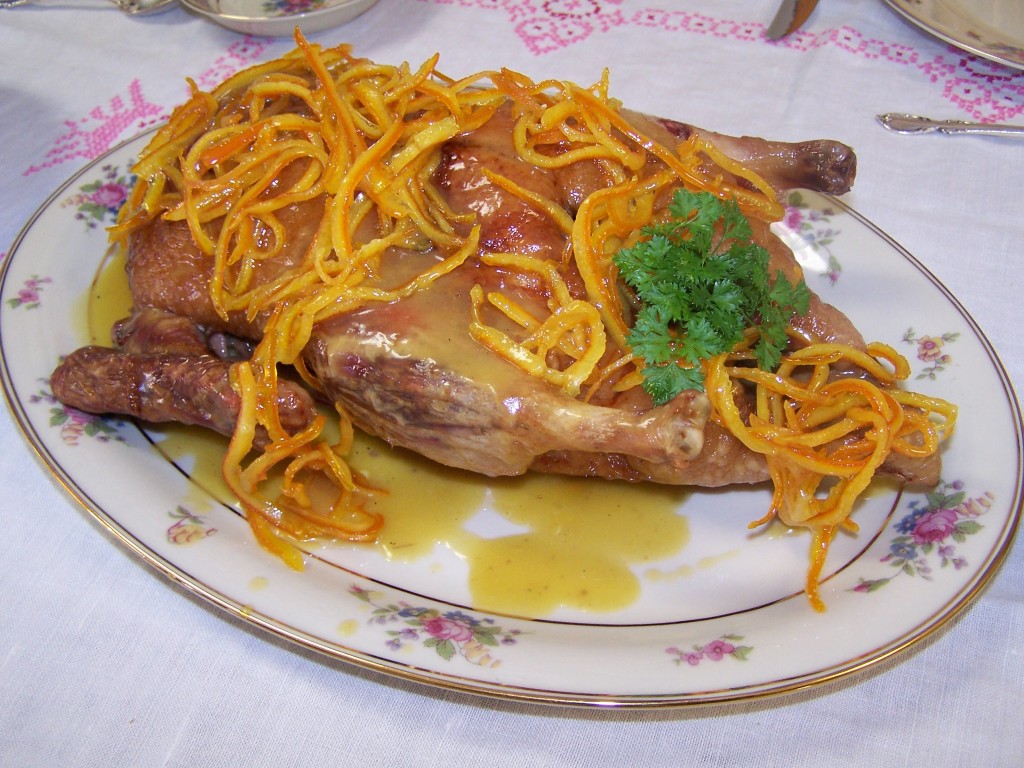Meals at Meduseld – Escoffier
With the passing of the 100th Anniversary of the sinking of the Titanic last year, we did a lot of research about that incredible ship, searching movies, documentaries, and buying books. One of the best books I found about the Titanic’s only voyage led me to another personal discovery, Auguste Escoffier.
The book is called Last Dinner on the Titanic, by Rick Archbold and Dane McCauley. The book has copies of actual menus of the last meals on the Titanic and first-hand accounts of what was served and how the food was served. It is an engaging account of that cruise, quite unlike any I have ever read, and since I enjoy cooking, it was that much more engrossing.
We dined last night in the Ritz restaurant. It was the last word in luxury. The tables were gay with pink roses and white daisies, the women in their beautiful shimmering gowns of satin and silk, the men immaculate and well-groomed, the stringed orchestra playing music from Puccini and Tchaikovsky. The food was superb: caviar, lobster, quail from Egypt, plover’s eggs, and hothouse grapes and fresh peaches. The night was cold and clear, the sea like glass.” First-class passenger Mrs. Walter Douglas
The authors describe the influences to the menus onboard and that is where Escoffier comes in.
Escoffier was born in 1846 and started his culinary career working at his uncle’s restaurant in Nice, France. During his life he was chef in the Savoy and Carlton restaurants in London, as well as in the Ritz in Paris. He composed eight cook books including the Guide Culinaire, which held a staggering 5000 recipes. He streamlined recipes and laid rules for cooking and serving that persevered well into the 1900’s. His Guide Culinaire is still in print and influences chefs all over the world. He stood out for being kind to his staff, which seems to imply that was not very common then. Escoffier improved sanitation in his restaurants. He was often called the “king of chefs and the chef of kings” and is arguably the Father of “haute cuisine.” His fame did not prevent him from having a generous heart – at the end of every day all left over food went to the poor, and he paid for its transport.
Escoffier perfected fine, rich, creamy sauces. He could turn any vegetable into a refined soup and he emphasized the importance of pairing foods properly and using fresh ingredients. While his recipes and rules may seem complicated, most are actually rather easy. For example, his hors d’oeuvres Concombres a’ la Danoise has only four ingredients – cucumbers, smoked salmon, smoked herring, and hard-boiled eggs.
Escoffier designed the kitchens for trans-Atlantic cruise ships and was still alive during the Titanic’s trip. Chef Proctor, the Titanic’s head chef, created his recipes and menus based on Escoffier’s menus at the Ritz. Proctor served the meals in courses, which is a method we take for granted these days but was an innovation made by Escoffier. Proctor’s menu for the Titanic’s first-class eleven-course dinner is included in the Last Dinner book. The first-class diners enjoyed items directly from Escoffier’s own cookbook such as Poached Salmon with Mousseline Sauce, Chicken Lyonnaise and roasted Squab.
The book also provides copies of the menus for second and third class. The second class menu features three courses which in modern-day would equal many first class restaurants. The third class, or steerage, menu was called a “Bill of Fare” and was hardly anything to turn down either. For example, Saturday’s dinner included soup, roast beef with gravy, green beans, boiled potatoes, cabin biscuits, fresh bread, and for dessert, prunes and rice. This is more than is served in many homes these days.
That they could serve so much food was an amazing achievement. The team of 60 chefs served 6000 meals a day. The kitchens were modern by 1912 standards, and included electrical appliances.
For years I have been studying French cuisine and collecting cookbooks and DVDs from Julia Child and Le Cordon Bleu; I considered these sources the beginning and end of French cooking. I have the Cordon Bleu’s book of French Classic Cuisine which includes stunning photographs of their creations that make your mouth water. But in my Julia Child/Cordon Bleu centered culinary universe, I did not know that their work was based on a greater genius, one to whom they actually make no mention in their Classics book!
Modern chefs emmulate Escoffier, especially his zeal for excellent ingredients and working with the growers in much the same way as the modern farm-to-table movements.
I have placed the book The Last Dinner on the Titantic in my Amazon store, along with two other cookbooks with recipes by Escoffier. One is The Illustrated Escoffier with an introduction by his grandson, and the other it Escoffier’s Guide. I am also including a link to the BBC’s brief video on Escoffier at the London Ritz. Bon Appetit!



No comments yet.